2nd Annual Advisory Board Meeting, July 2017
August 1, 2017
At the start of July we had the second meeting of our Advisory Board. Similar to our previous get together at the end of our first year, we invited our UK-based Board members to join us in Nottingham for a two-day meeting, divided into four sessions, in order to discuss the progress we had made on the grant, …
Reading Group: Internationalism and Race
July 1, 2017
Goswami, M. (2012) Imaginary futures and colonial internationalism, American Historical Review, 117 (5), 1461-1485. Manela, E. (2007) The Wilsonian moment: self-determination and the international origins of anticolonial nationalism, Oxford: Oxford University Press Singh, N (2004) Black is a country: race and the unfinished struggle for democracy, Cambridge: Harvard University Press This reading group presented us …
Reading Group: Sensory History
June 1, 2017
Tim Edensor, ‘The Social Life of the Senses: Ordering and Disordering the Modern Sensorium’ in David Howes (ed.), A Cultural History of the Senses in the Modern Age, 1920-2000 (Bloomsbury, 2014) Rebecca P. Scales, Radio and the Politics of Sound in Interwar France (Cambridge University Press, 2016), Chapter 2 ‘Disabled veterans, radio citizenship, and the …
Reading Group: The International City
May 1, 2017
Not only were conferences key spaces where the world order was redesigned in the wake of the World War I – where new borders were drawn and states created – but they were held in towns, cities, and regions that were themselves materially transformed by the increasing intensity and scale of conference events. Large imperial centres …
A Princely Archive: The Ganga Singh Memorial Trust records, Bikaner, Rajasthan, India
April 1, 2017
The nation state monopolises many official archives. These include archives at the level of the nation (the National Archives of India, in New Delhi, or the UK in Kew, London), but also at subsidiary levels (the Scottish National Archives in Ediburgh, the Bengal archives in Kolkata, the Nottinghamshire County archives in Nottingham). Conferencing the International argues that …
The Nehru Memorial Museum and Library, New Delhi
March 1, 2017
Undertaking historical research in India presents the researcher with a more broadly familiar set of dilemmas: oral or archival history; popular or elite; published materials, commercial products, popular objects and social movements, or official documents, state repositories and the archive of power? These are, of course, false distinctions; the popular press tells us much about …
Reading Group: Performance and the Senses
February 1, 2017
Craggs R (2014) Postcolonial geographies, decolonization, and the performance of geopolitics at Commonwealth conferences Singapore Journal of Tropical Geography 35, 39-55 Geertz, C. (1980). Negara: The theatre state in nineteenth-century Bali. Princeton, N.J: Princeton University Press. Paterson, M (2009) Haptic geographies: ethnography, haptic knowledges and sensuous dispositions Progress in Human Geography 33, 766-788 This …
Call for papers: Anti-colonialism and the Spaces of Political Negotiation
January 20, 2017
Anti-Colonialism and the Spaces of Political Negotiation Dr. Jake Hodder and Prof. Stephen Legg, University of Nottingham Two sessions at the RGS-IBG Annual Conference (29 August – 1 September 2017): Chair’s theme “Decolonising geographical knowledges: opening geography out to the world” Co-sponsored by the Historical Geography Research Group and Political Geography Research Group One form of …
The National Archives of India
January 1, 2017
The National Archives of India in New Delhi, like the British National Archives at Kew in London, turn government into History. Minutes, memoranda, laws, reports, and inter-governmental circulars, designed solely for the purpose of colonial bureaucracy, now become the stuff of history making; a dauntingly huge Imperial Archive. A substantial body of scholarship exists on …
International Institute of Agriculture Archives, Rome
December 1, 2016
I recently spent ten days at the UN Food and Agriculture Organisation (FAO) in Rome, investigating the FAO’s forgotten precursor, the International Institute of Agriculture (IIA). The IIA was established in 1905 by David Lubin (1849-1919), a wealthy American businessman and agrarian philosopher whose name is memorialised in the FAO’s library. The IIA reflected Lubin’s …

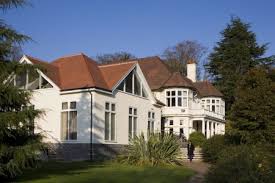
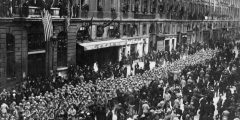

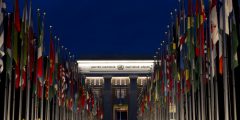
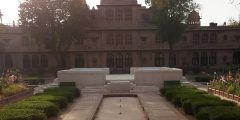
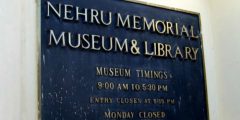
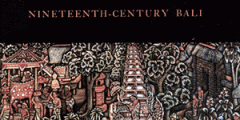
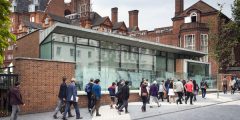
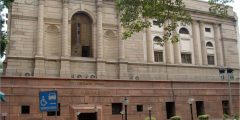
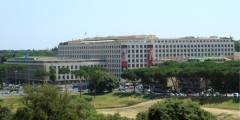
Recent Comments